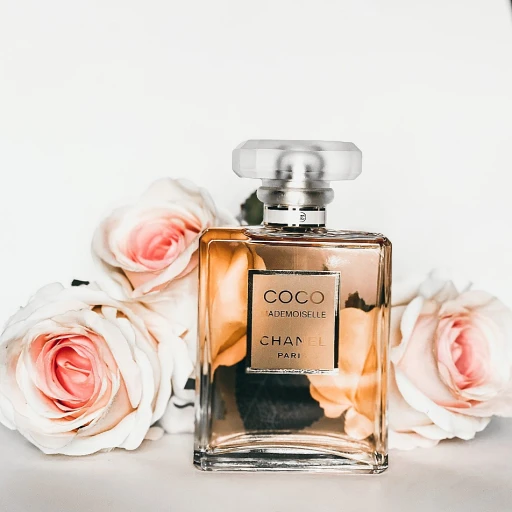
The Fragrant Appeal of Lavender Oil
The Charm and Attractiveness of Lavender Fragrance
Lavender oil stands as one of the most cherished essential oils in the world of fragrance. The allure of lavender lies in its unique blend of sweet, floral, and slightly woody notes that evoke a sense of relaxation and tranquility. This timeless scent has transcended generations and cultures, continuing to captivate perfumers and fragrance enthusiasts alike.
Beyond its delightful aroma, lavender oil offers a natural charm through its versatile application. Not only does it enhance perfumes and personal care products, but it also emerges as a valuable natural repellent against pesky insects. As we delve further into its uses, you'll find that lavender oil also plays a significant role in pest control through its natural insect-repelling properties. Such attributes make it a fantastic option for those looking for a harmonious balance between pleasure and functional uses.
The beauty of lavender oil is further enriched by its natural composition. Unlike synthetic repellents, which may contain harsh chemicals, lavender oil, derived from natural ingredients, provides a gentle alternative for the skin and environment. Whether it's in the form of oils, sprays, or creams, lavender essential oils offer a deet-free, skin-friendly way to repel insects while enveloping you in a comforting embrace of nature.
Moreover, lavender oil often comes at a reasonable price, with various packing options allowing for tailored purchases based on individual needs. From concentrated bottles to multi-pack stars, the product's flexibility ensures that lavender oil caters to a wide range of pocket sizes, without compromising on quality or effectiveness.
Lavender Oil: A Natural Solution for Bug Repellency
The Natural Path to Pest-Free Living
Lavender oil has long been cherished for its aromatic appeal, but it also shines as a natural ally against insects. This essential oil is a formidable opponent for bugs like mosquitoes, providing an effective insect repellent option free from chemicals like DEET. The ability of lavender oil to repel insects offers a gentle yet powerful alternative to traditional pest control methods that may rely on synthetic products.
Products derived from natural ingredients are gaining popularity among those seeking eco-friendly solutions. Lavender essential oil fits this niche perfectly, offering a natural insect repellent that can seamlessly blend into various forms such as sprays and skin applications. Its natural origin ensures that it’s gentle on the skin, while its ability to keep bugs at bay is well-documented. For instance, studies noted by organizations such as the NLM and NCBI further underscore lavender oil’s efficacy as a mosquito repellent.
In choosing lavender oil for your pest control needs, you enjoy both the benefits of aromatherapy and effective insect prevention. While the price of lavender oil products may vary, they are often well-priced when considering their dual purpose as both a fragrance and a bug deterrent. Moreover, this essential oil sets itself apart in the market of natural insect repellents, rivaling others like lemon eucalyptus by offering a unique scent profile and versatile application methods.
Its utilization can be as straightforward as mixing the oil with distilled water to create a deet-free bug spray, or adding a few drops to your existing skincare regime. Lavender oil offers consumers the chance to invest in a pack that promises natural defense, turning the regular price of insect repellent into a small investment for a star product in pest control.
The Science Behind Lavender's Bug-Repelling Properties
The Scientific Rationale Behind Lavender's Insect-Repelling Characteristics
Lavender oil, the quintessence of natural insect repellents, offers an intriguing mix of both scientific and anecdotal evidence to support its efficacy. But what makes this essential oil such an effective bug repellent? The primary component responsible for lavender’s repellency is linalool, a naturally occurring terpene alcohol found in many flowers and spice plants. This compound is known for its pest control properties and is widely studied for its effects on insects like mosquitoes and other small pests. According to research published on platforms like NLM and NCBI, linalool has shown promise as a mosquito repellent, helping to repel insects effectively due to its aromatic and evasive nature. Moreover, lavender oil contains geraniol, another compound frequently found in essential oils used as natural insect repellents. This makes it a popular choice for those seeking a natural solution without the need for chemical-based products. The benefit of lavender essential oil is enhanced by its calming aroma, making it a dual-purpose repellent and ambient enhancer. Beyond its efficacy, lavender oil enjoys popularity partly due to its versatility in application. Whether mixed into a distilled water spray for easy use or applied directly to the skin as a mosquito repellent, lavender oil provides a safe, deet-free option that's suitable for various settings. For individuals interested in how lavender oil stands against other natural repellents, including lemon eucalyptus, it's clear that the integration of natural ingredients can provide adequate protection when properly applied. Understanding and utilizing the scientific foundations of lavender essential oils not only demystifies its benefits but encourages broader adoption as part of an eco-friendly lifestyle. For additional insights into how fragrances adapt and evolve in modern products, you might find this examination of the allure of jasmine in modern cologne insightful.Incorporating Lavender Oil into Your Daily Routine
Integrating Lavender Oil as an Everyday Bug Deterrent
Adding lavender essential oil to your daily routine not only provides a soothing aroma but also offers a natural insect repellent solution. This versatile essential oil can be seamlessly incorporated into various aspects of your life to help keep unwelcome pests at bay without the need for synthetic chemicals.
For effective pest control, consider these practical applications:
- Body Application: Dilute a few drops of lavender oil with a carrier oil, such as coconut or almond oil, and gently apply it to exposed skin. This method serves as an excellent bug spray while also nourishing your skin.
- Aromatherapy Diffuser: Diffusing lavender oil can help repel insects indoors while creating a calming atmosphere in your living space. The repellent properties of lavender, combined with its soothing scent, make it an ideal choice for indoor use.
- Homemade Linen Spray: Mix lavender oil with distilled water in a spray bottle for a delightful linen spray that can freshen up bed sheets, curtains, and sofas, further protecting your home from mosquitoes and other insects.
With its natural ingredients and delightful aroma, lavender oil is not only an effective insect repellent but also adds a touch of serenity to your environment. As you seek to repel mosquitoes and other bugs, the dual benefit of pest control and therapeutic scent makes lavender oil a superb choice in both essential oils and natural insect repellents. While the price for a pack of lavender oil may vary, its price product tends to offer great value for its multipurpose uses as both a fragrance and a natural repellent.
Comparing Lavender Oil with Other Natural Repellents
Comparing Lavender Oil with Other Fragrant Insect Solutions
When considering natural options for pest control, lavender oil is a popular choice. But how does it stack up against other essential oils and natural ingredients like lemon eucalyptus? Understanding the nuances between these natural repellents can help refine your approach to keeping pesky insects at bay.- Lavender Essential Oil: Known for its soothing properties, lavender oil is admired not just for its aromatic appeal but also for its versatility. It serves as a gentle skin-friendly insect repellent, making it a go-to for those who avoid chemical-based products like DEET.
- Lemon Eucalyptus Oil: Another star player in the world of natural insect repellents is lemon eucalyptus. Recognized by organizations such as NLM and NIH for its efficacy against mosquitoes, this oil often graces the ingredient list of DEET-free products. With a slightly more pungent aroma, it provides a robust option for those seeking more potent bug defense.
- Price and Accessibility: When evaluating the price of lavender oil in comparison to other natural repellents, it remains a competitively priced product. It's often available in pack options, which offer better value without compromising on quality. The price per product can vary depending on the brand and concentration of the essential oil.
- Effectiveness and Stars Ratings: Lavender essential oil tends to receive positive reviews, often scoring high in user satisfaction when it comes to mosquito control. However, it’s important to note that while lavender is a stellar option for a pleasant natural barrier, oils like citronella and lemon eucalyptus may provide more targeted protection in high mosquito count areas.
- Ease of Use: Incorporating lavender into your daily routine is simple. A small amount can be added to a homemade bug spray using distilled water, allowing for an easily adjustable formula that suits your needs.
DIY Lavender Oil Bug Spray: A Step-by-Step Guide
Creating Your Own Lavender Oil Bug Spray
Crafting your DIY lavender oil bug spray can be a rewarding way to leverage lavender's natural insect repellent properties. This homemade solution is not only cost-effective but also free from the harsh chemicals found in many commercial products. Here’s a simple guide to help you get started.
Ingredients You’ll Need:
- 10 drops of lavender essential oil
- 5 drops of lemon eucalyptus essential oil (for extra effectiveness)
- 2 tablespoons of witch hazel
- 2 tablespoons of distilled water
- A small spray bottle
Step-by-Step Instructions:
1. Mix the Base: Begin by combining the witch hazel and distilled water in the spray bottle. This will serve as the base for your bug spray, providing a balanced solution for the oils.
2. Add Essential Oils: Carefully add the lavender essential oil. Lavender oil is renowned for its ability to repel mosquitoes and various insects. Along with lavender, include lemon eucalyptus essential oil for additional natural insect control. Mix the contents well.
3. Shake Well: Before each use, gently shake the spray bottle to ensure the oils and base are thoroughly mixed for effective application.
4. Application: Spray a light mist over exposed skin and clothing. Keep the mixture away from eyes and mouth. Remember that while this natural insect repellent is effective, it should be applied more frequently than DEET-based products.
By using this homemade bug spray, you can enjoy the fragrant appeal of lavender while safeguarding against pesky insects. Additionally, this option can be more affordable compared to the regular price of some commercial natural insect repellent products. Explore this creative method, and adjust the essential oils according to your preference.













